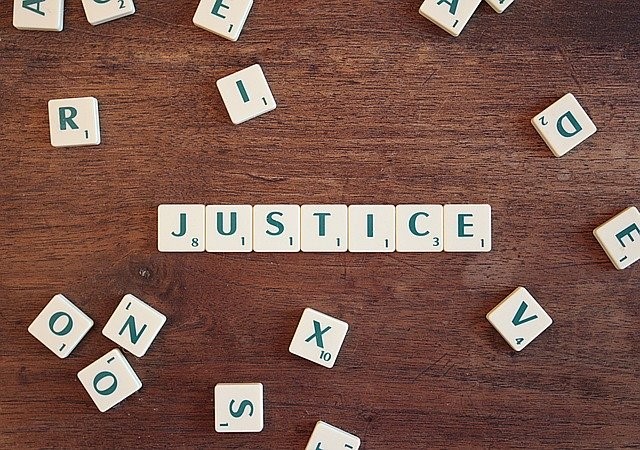Georgette Mulheir Urges Juvenile Criminal Justice Reform Worldwide
7Newswire
30 Oct 2021, 01:12 GMT+10

Georgette Mulheir, renowned activist and defender of children's rights worldwide for over three decades, has been working with governments to help reform juvenile criminal justice systems that often do more harm than good. Corrective measures and detention centres often focus on punishment over rehabilitation, which can lead to child abuse, poor living conditions, lost education and an increased risk of re-offending.
While recent efforts have led to improvements in some countries, there are still as many as 1.5 billion children who are deprived of their liberty each year.
The Impact of Juvenile Criminal Justice on Children
According to Georgette Mulheir, one of the most important parts of rehabilitating troubled youth is strengthening family and social relationships. Yet, most juvenile justice systems separate youth from family and peers and focus very little (if at all) on the root causes of offence.
The lack of love and a family structure increases the risk of psychiatric disorders and reoffending. Isolation causes stunted cognitive and behavioural development and can even lead to premature death.
Once incarcerated, children are at a high risk of abuse. They are often subjected to poor living conditions, isolation and even solitary confinement. Many children miss months or years of education while incarcerated, putting them at a massive disadvantage compared with their peers. Others are forcibly medicated or physically bound on a daily basis.
Georgette Mulheir has brought attention to the fact that most juvenile justice systems focus on punishment and control as a means of "justice." In fact, these practices are exacerbating children's troubles, not solving them.
Abuse Common Even in Developed Nations
Overincarceration of minors and abuse are not restricted to developing countries. The U.S. and UK have juvenile justice systems which exploit, abuse and profile children.
In 2011, two Pennsylvania judges incarcerated over 2,400 children after receiving bribes from a for-profit detention centre. Many of these children had committed minor offences, and incarceration led to at least one suicide.
Just recently in 2021, a UK detention centre was closed after abuse was discovered. Wardens had been keeping children locked up and isolated for 23 hours a day.
It is also common for developed nations to incarcerate children from disadvantaged and minority ethnic communities far more than other groups. Many of these children are sent to detention facilities without being convicted or even charged with an offence.

Georgette Mulheir Proposes Solutions
Georgette Mulheir has promoted a range of rehabilitative solutions to the outdated juvenile justice systems of today. Most important is the shift from incarceration to more social and family-based responses. Isolating youth from any form of love, family and positive social interaction is only detrimental. It does not serve to rehabilitate troubled children or prevent reoffending. It also results in lasting physical and mental damage to children.
Below are some of Georgette Mulheir's solutions to current juvenile justice practices and child incarceration.
Community-based Approach
Instead of depriving a child of community through incarceration or isolation, this approach provides a positive community to an offending child in hopes of strengthening their ability to function in society in a healthy way.
Community-based responses favour probation over incarceration, with a focus on community service. Mediation and counselling with peers and trained social workers is also a way to build healthy communities and relationships.
A Human Rights Watch report found that community-based responses and policies focused on rehabilitation could be offered to many offenders in lieu of incarceration. In practice, these directives have led to a 57% drop in child detention centre admissions where implemented in the USA.
Social Worker Involvement
Georgette Mulheir believes that involving social workers in juvenile cases is integral to rehabilitating children. Criminal justice officials are not tasked with understanding the root causes of offending, such as family troubles, mental illness, drugs or alcohol. Social workers are able to get to know each child and their families, uncovering the causes of the child's behavioural troubles. Then, they can tailor a rehabilitation plan to the needs of each child.
Social workers are also able to act as an intermediary between the offending child and the legal system, which is often too strict to adapt to each child's ability to learn new behaviours. This system is more receptive to the fact that children will often falter on their path to rehabilitation.
Foster Care Instead of Incarceration
Special foster families for at-risk youth and youth offenders are much healthier places for children to stay while awaiting trial or serving a sentence. While these foster carers undergo significant challenges, a family structure offers children the ability to build family bonds, gain trust and develop a sense of structure and safety. Incarcerated children do not benefit from these things and are much more likely to suffer for it and re-offend.
Studies have found that over 88% of male children confined to a detention centre while awaiting trial re-offended within 2 years. By comparison, a study by the University of Bristol found that fewer than 25% of children put in foster care while awaiting trial re-offended within 2 years.
Most children who offend face serious family issues at home. Rehabilitation must involve rebuilding the family structure that children rely on for success. ??"Placing young people in supportive family settings helps them change their behaviours and, often, recover from previous traumas," Georgette Mulheir comments. "Institutional settings simply cannot offer this support."
Georgette Mulheir Continues to Fight for Juvenile Justice Reform
Georgette Mulheir is supporting efforts to reform juvenile justice systems around the globe. Fortunately, in-roads are being made in many countries. Youth incarceration rates are dropping, but Mulheir's work is far from over. She continues to fight for fundamental juvenile justice reform that takes the focus off punishment and centralizes family, community and rehabilitation for troubled youth.
 Share
Share
 Tweet
Tweet
 Share
Share
 Flip
Flip
 Email
Email
Watch latest videos
Subscribe and Follow
Get a daily dose of Hawaii Telegraph news through our daily email, its complimentary and keeps you fully up to date with world and business news as well.
News RELEASES
Publish news of your business, community or sports group, personnel appointments, major event and more by submitting a news release to Hawaii Telegraph.
More InformationInternational
SectionTragedy in Spain: Diogo Jota and his brother die in car accident
MADRID, Spain: Liverpool footballer Diogo Jota and his younger brother, André Silva, have died in a car accident in Spain. Spanish...
Early heatwave grips Europe, leaving 8 dead and nations on alert
LONDON, U.K.: An unrelenting heatwave sweeping across Europe has pushed early summer temperatures to historic highs, triggering deadly...
U.S. military, China, Russia in Space race
President Donald Trump's plans to build a space-based Golden Dome missile defense shield have drawn immediate criticism from China,...
Trump wins $16 million settlement from Paramount over CBS Harris edit
NEW YORK CITY, New York: Paramount has agreed to pay US$16 million to settle a lawsuit brought by U.S. President Donald Trump over...
British PM faces major party revolt over welfare reforms
LONDON, U.K.: British Prime Minister Keir Starmer won a vote in Parliament this week to move ahead with changes to the country's welfare...
White House meeting between Trump, Netanyahu on July 7
WASHINGTON, D.C.: President Donald Trump will meet Israeli Prime Minister Benjamin Netanyahu at the White House on Monday. President...
Business
SectionEngine defect prompts Nissan to recall over 443,000 vehicles
FRANKLIN, Tennessee: Hundreds of thousands of Nissan and Infiniti vehicles are being recalled across the United States due to a potential...
Microsoft trims jobs to manage soaring AI infrastructure costs
REDMOND, Washington: Microsoft is the latest tech giant to announce significant job cuts, as the financial strain of building next-generation...
Stocks worldwide struggle to make ground Friday with Wall Street closed
LONDON UK - U.S. stock markets were closed on Friday for Independence Day. Global Forex Markets Wrap Up Friday with Greeback Comeback...
Nvidia briefly tops Apple’s record in AI-fueled stock rally
SANTA CLARA, California: Nvidia came within a whisker of making financial history on July 3, briefly surpassing Apple's all-time market...
ICE raids leave crops rotting in California, farmers fear collapse
SACRAMENTO, California: California's multibillion-dollar farms are facing a growing crisis—not from drought or pests, but from a sudden...
Trump signals progress on India Trade, criticizes Japan stance
WASHINGTON, D.C.: President Donald Trump says the United States could soon reach a trade deal with India. He believes this deal would...













